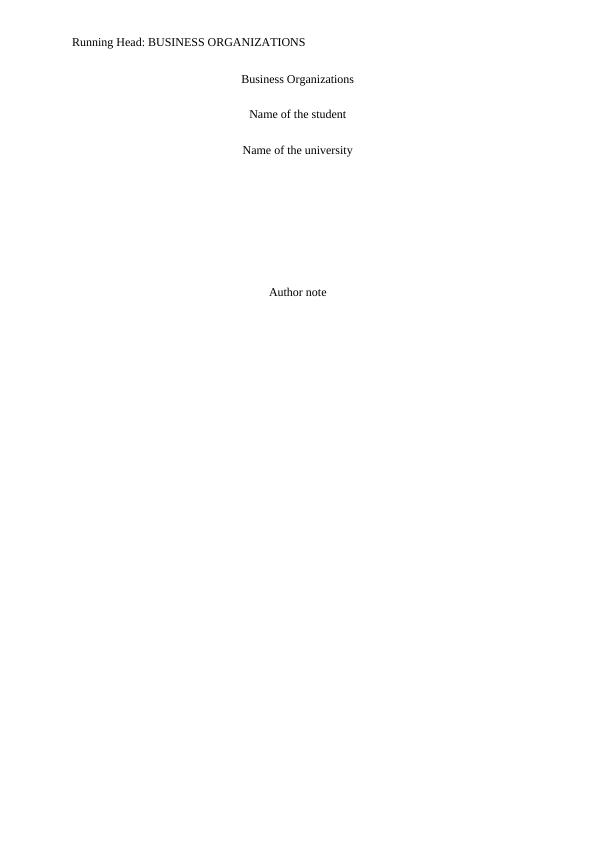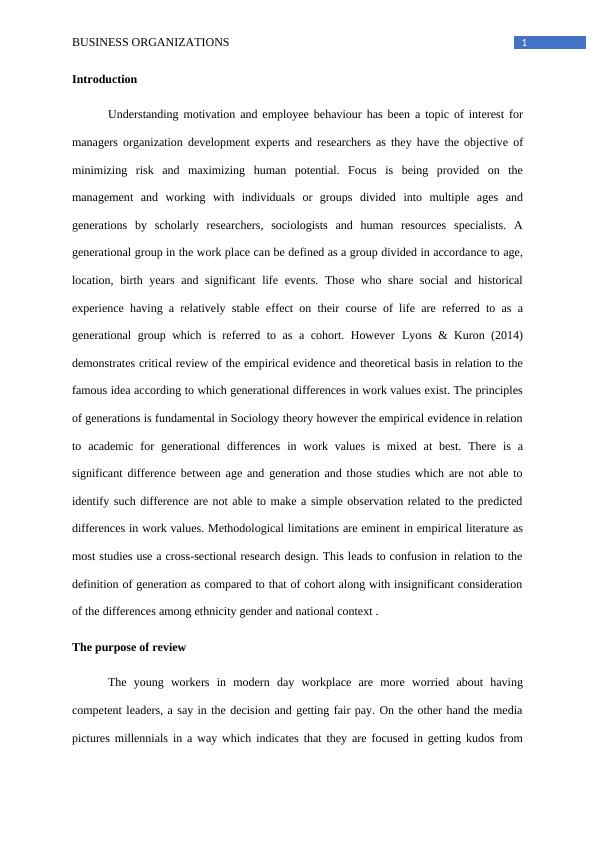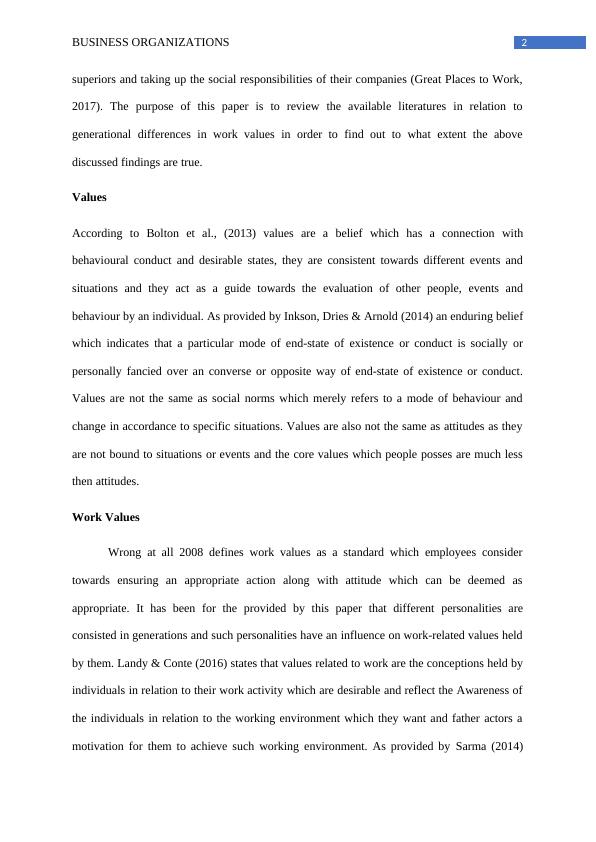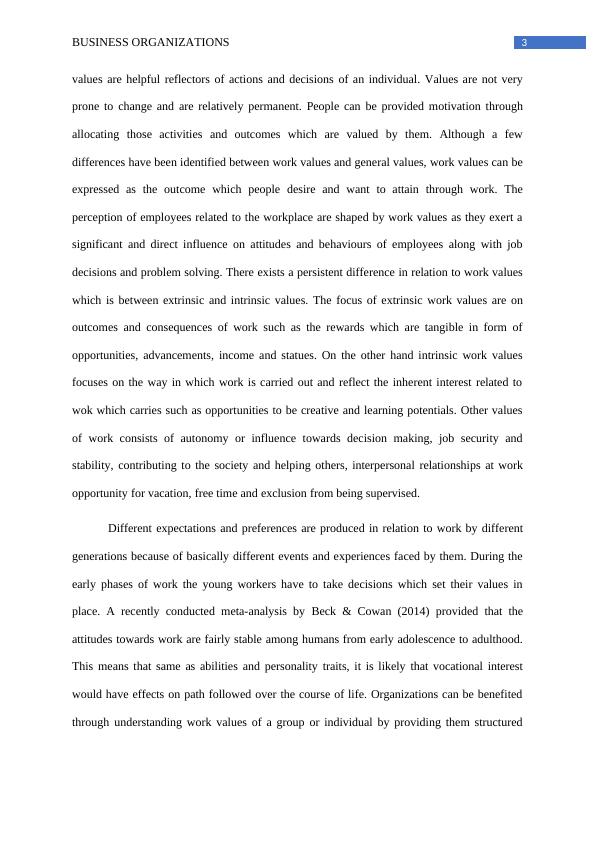Motivation and Employee Behaviour in Business Organizations
13 Pages3591 Words62 Views
Added on 2020-02-24
About This Document
A generational group in the work place can be defined as a group divided in accordance to age, location, birth years and significant life events. However Lyons & Kuron (2014) demonstrates critical review of the empirical evidence and theoretical basis in relation to the famous idea according to which generational differences in work values exist. There is a significant difference between age and generation and those studies which are not able to identify such difference are not able to make a simple observation related to the predicted differences in work values. Values
Motivation and Employee Behaviour in Business Organizations
Added on 2020-02-24
ShareRelated Documents
End of preview
Want to access all the pages? Upload your documents or become a member.
Organizational Behaviour: Cross-Cultural Issues and Solutions
|7
|1960
|308
Understanding the Consumer: Factors Influencing Behavior in Hospitality
|16
|914
|58
Significance of Population and Sampling Techniques
|23
|6553
|3
Authentic Leadership and Psychological Capital
|11
|3078
|426
Generational Theory and Motivation | Report
|12
|3989
|17
CULTURE IN INTERNATIONAL BUSINESS
|10
|2812
|14




